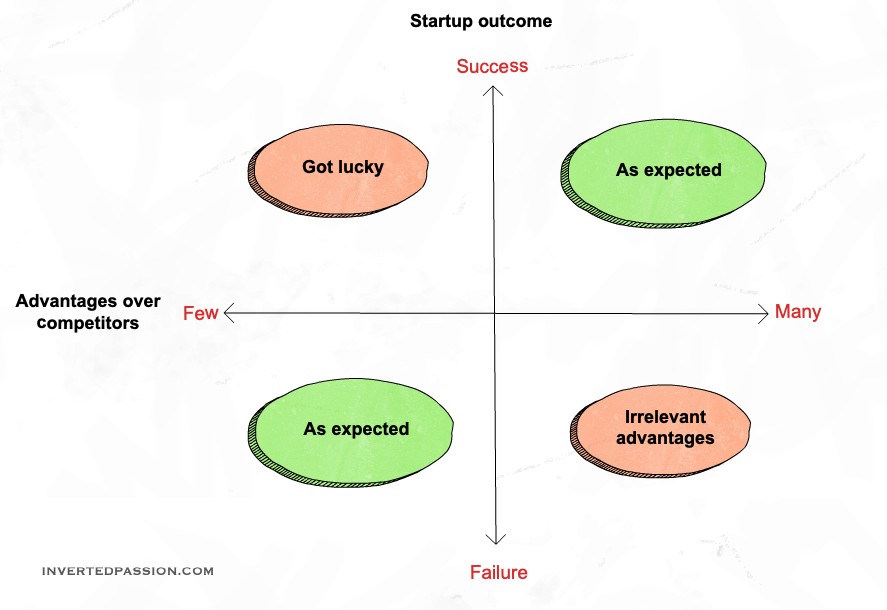Capitalism rewards rare and valuable. Making something that customers value is important, but so is making something rare. Markets are competitive and initial success usually leads to other companies or new startups trying to copy and replicate such success for themselves. The last thing you want is for someone else to come along and capture your entire market for themselves.

It’s true that copying by competitors may or may not happen, and such copying by others may or may not be successful. But why leave that to chance? In fact, companies that are copying your business will likely use all their unfair advantages to crush you. If they have more funding, they can out-market you. If they have better engineers, they can develop a more stable product. If they have a brand name, they will use it.
Forget about fairness. Business competition is brutal and your competitors will not hesitate to borrow, steal, cheat and lie to defeat you.
In 2017, Instagram used its unfair advantage of a larger user base to copy and launch Snapchat’s most successful feature – stories. And they were (rightly) unashamed of doing so. Instagram’s head of product Kevin Weil explained their move by saying:
“If we are being honest with ourselves, this is the way the tech industry works and frankly it’s how all industries work. Good ideas start in one place, and they spread across the entire industry. Kudos to Snapchat for being the first to Stories, but it’s a format it’s going to be adopted widely across a lot of different platforms.”
Instagram stories succeed massively and many believe that is what effectively stifled Snapchat’s growth.
So if other businesses use their unfair advantages all the time, you should use them too.
Though it’s easy to believe that something is an advantage when it’s not. An advantage is unfair only if you have an access to it but your competitors don’t. (Believing that you’re better or more hard-working doesn’t work). Exclusivity can be because of your unique professional network, your gut-level understanding of a niche market (that cannot be easily replicated without sufficient time investment by others), your focus and decision of what to do and what not to do, proprietary technology or perhaps an insight that won’t be obvious to others even after launching.
Introspect and list down all your unfair advantages and then use all of them. Each unfair advantage matters and all of them add up to providing a significant deterrent to competitors keen on copying what you’ve built.
When you are starting out, you may not have unfair advantages. If you know how to code, so do many other people. Lacking an unfair advantage, you can succeed only via good market timing and luck. As someone with no unfair advantage over others, be ready to fail multiple times to give luck and timing a chance to be in your favor.
A word of caution. For an advantage to be unfair, it has to be both: an advantage and unfair. Due to our confirmation bias, it’s easy to fall into the trap of confusing non-advantages with advantages and common knowledge as something exclusively known to you. You must be totally honest about what’s an unfair advantage and what’s not. It’ll help you to take feedback on this from someone else.
Remember: the aim of any business is to prevent itself from getting irrelevant by competition while itself trying to make competition irrelevant. That can only happen with creating and using unfair advantages.
This essay is part of my book on mental models for startup founders.
Join 150k+ followers
Follow @paraschopra